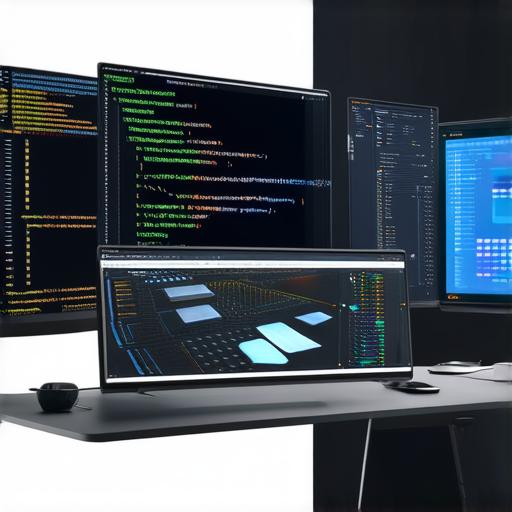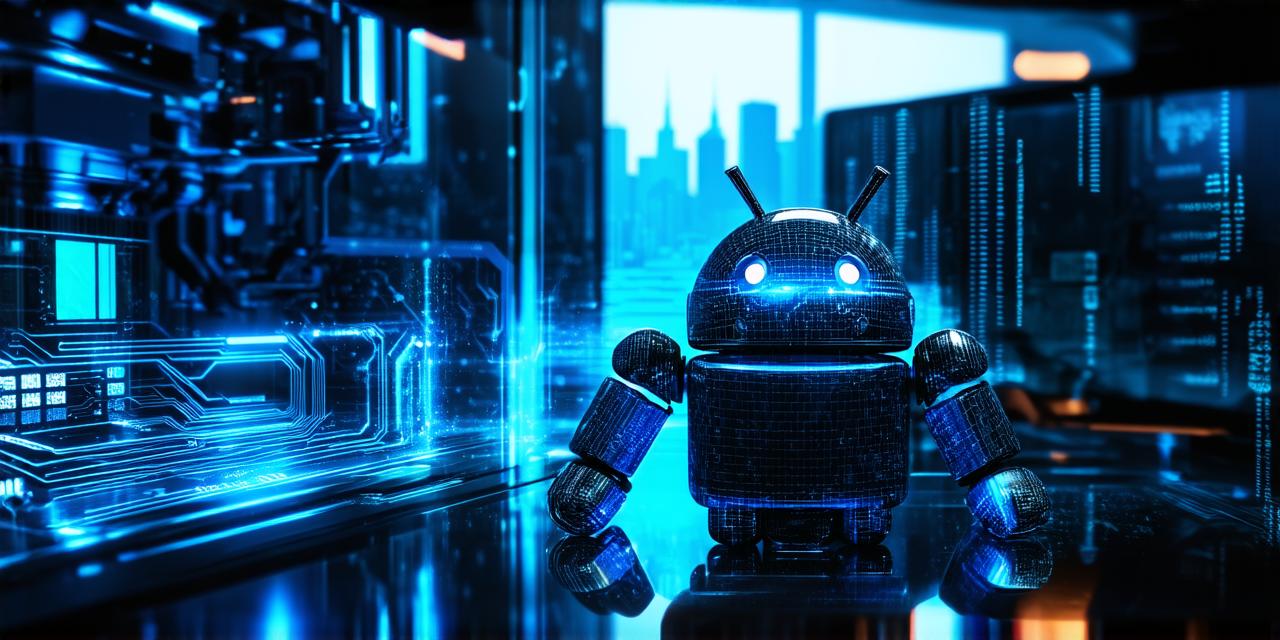Introduction
Android is the most popular mobile operating system (OS) worldwide, with over 1.9 billion active devices as of Q2 2021. This massive user base presents a lucrative opportunity for app developers to showcase their creativity and innovation.
As technology continues to evolve, it’s crucial for Android app developers to keep up with the latest trends and best practices to stay ahead of the competition.
In this article, we’ll explore some cutting-edge trends in Android app development in 2023. We’ll dive into topics such as augmented reality (AR), artificial intelligence (AI), and security, among others. By the end of this article, you’ll have a better understanding of what to expect from Android app development in the upcoming year and how you can incorporate these trends into your projects.
Augmented Reality
Augmented reality (AR) is an emerging technology that overlays digital information onto the real world. It has been gaining popularity in recent years, especially in the gaming and e-commerce industries. AR apps allow users to interact with their environment in new and exciting ways, making them a valuable addition to any app portfolio.
In 2023, we can expect to see more integration of AR technology into Android app development. Developers will continue to explore new use cases for this technology, such as virtual try-on experiences in the fashion industry or interactive product demos in the retail sector. As AR becomes more accessible and affordable, we’ll also see a rise in the number of small and medium-sized enterprises (SMEs) incorporating this technology into their apps.
Artificial Intelligence
Artificial intelligence (AI) is another cutting-edge trend that is expected to continue its growth in 2023. AI technology has the potential to revolutionize many industries, from healthcare and finance to transportation and manufacturing. In Android app development, we’ll see more integration of AI algorithms to create smarter, more intuitive user experiences.
One example of this is chatbots, which are becoming increasingly popular in customer service. Chatbots can handle simple inquiries, freeing up human support staff to focus on more complex issues. They also provide 24/7 availability and personalized responses, making them a valuable addition to any app.
Another area where AI is expected to make an impact is in the gaming industry. Machine learning algorithms can be used to create more realistic and challenging gameplay experiences. For example, in the popular game “Pokemon Go,” machine learning was used to make the game’s monsters more intelligent and adaptive, making each encounter unique for the player.
Security
With the rise of mobile devices and the increasing reliance on them for sensitive information such as banking and personal data, security has become a top concern for Android app developers. In 2023, we can expect to see more emphasis on security features in Android apps, including multi-factor authentication, encryption, and biometric authentication.
One example of this is the use of fingerprint scanners to unlock smartphones. Fingerprint scanning technology has become increasingly common, as it offers a secure and convenient way for users to access their devices. However, as with any security feature, it’s essential to keep up with the latest threats and vulnerabilities to ensure that your app remains secure.
Another area where security is critical is in the development of apps for the Internet of Things (IoT). As more devices become connected to the internet, there’s a growing risk of cyber attacks. Android app developers must prioritize security when building apps for IoT devices to protect user data and prevent unauthorized access.
Case Studies
Let’s take a look at some real-life examples of cutting-edge trends in Android app development.
1. Snapchat’s AR Filters
Snapchat is an excellent example of how AR technology can be used to create engaging and interactive user experiences. The app’s filters have become incredibly popular, with over 150 million users per day using them as of Q2 2021. These filters allow users to add digital elements to their photos and videos, making them more fun and shareable.
1. Google Assistant’s Voice Commands
Google Assistant is an excellent example of how AI technology can be used to create a more intuitive user experience. The app uses natural language processing to understand voice commands, allowing users to interact with their devices in a more natural way. This feature has made it easier for users to find information and complete tasks without having to navigate through menus or type out queries.

1. Zoom’s Video Conferencing App
Zoom is an excellent example of how security concerns have driven innovation in Android app development. The app’s end-to-end encryption feature ensures that all meetings are secure and private, making it a popular choice for remote work and virtual events. In addition, the app includes features such as waiting rooms and breakout rooms to help facilitate more efficient meetings.
Summary
In conclusion, Android app development in 2023 is expected to be driven by cutting-edge trends such as augmented reality, artificial intelligence, and security. By keeping up with these trends and incorporating them into their projects, Android app developers can create more engaging, intuitive, and secure user experiences. As the world becomes increasingly reliant on mobile devices for communication, entertainment, and work, there’s no doubt that Android app development will continue to evolve and adapt to meet the needs of its massive user base.
FAQs
1. What is augmented reality?
Augmented reality (AR) is a technology that overlays digital information onto the real world. It allows users to interact with their environment in new and exciting ways, making it an excellent addition to any app portfolio.

1. How can artificial intelligence be used in Android app development?
Artificial intelligence (AI) algorithms can be used to create smarter, more intuitive user experiences in Android apps. For example, chatbots can handle simple inquiries and provide 24/7 availability and personalized responses. AI technology can also be used to make games more challenging and realistic.

1. What are some security features that should be included in Android apps?
Some security features that should be included in Android apps include multi-factor authentication, encryption, biometric authentication, and regular updates to address known vulnerabilities.
